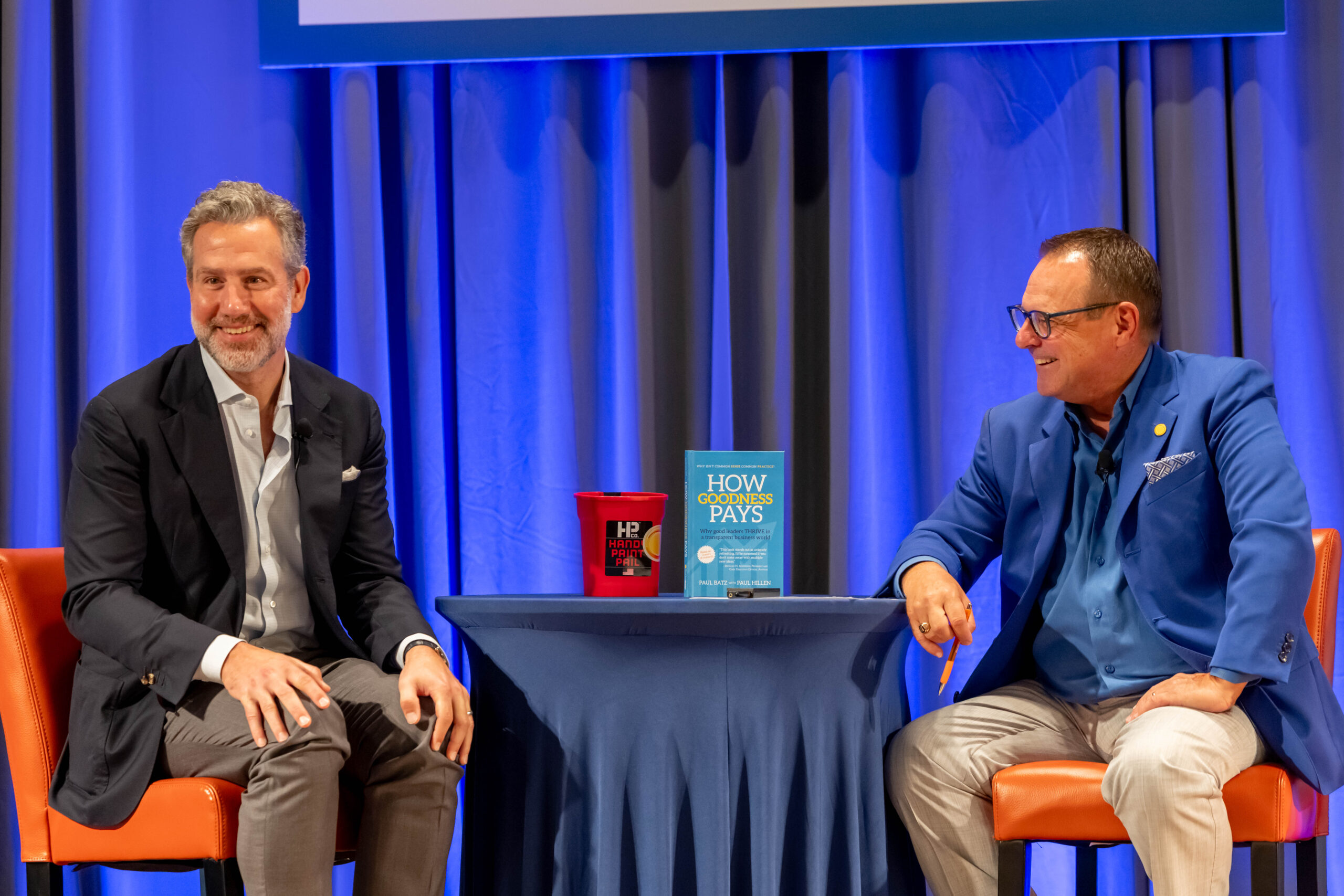

Good Leaders: How do you feel about your money?
Paul Batz

Nathan Dungan was in New York City, the day the Twin Towers collapsed. The four days of confinement to his hotel room, and then two days of driving a rental car back to Minnesota, created the perfect opportunity for him to re-think his life.
I invited Nathan to speak at the Good Leadership Breakfast (watch the highlights) because of the fascinating money conversations I’ve shared with clients since writing the book about the Seven Fs: faith, family, finances, fitness, friends, fun and future. It never fails: the money narrative people have in their head, is the #1 influence in how they are thinking about “future.”. To some it produces wonderful possibilities…others frustration and anguish.
How Nathan’s World Changed

“At the time of 9/11, I was a marketing executive promoting wealth creation in the financial services industry,” he explained. “The events of 9/11 helped me realize I needed a new money narrative. Something deeper and more meaningful.”
What emerged was a missional approach to promoting a new way of thinking about money that encourages total well-being for individuals and families. “Our research shows that when people think about sharing first, saving second, and spending third…their materialism goes down, and their self-esteem rises,” he shared. “That’s why we do what we do!”

First, came the book Prodigal Sons and Material Girls – How Not To Become Your Child’s ATM. Then, came the growth of the coaching consulting practice around the Share Save Spend ideology, and now an online series of video tutorials at Money Sanity U.
To me, it’s fascinating how the same sum of money can be the source of immense joy, and also huge arguments…depending on the context. After interviewing Nathan, I understand it’s driven by what he calls our “money narrative.”
Perspective and Values Matter
“80% of Americans list money as the #1 source of stress in their lives,” Nathan coached. “Our money narrative that started for us as children, informs the choices we make about money – and how we handle that stress.”

So Nathan’s talk ended with some good coaching: “The key to a healthy money narrative is to talk about money early and often – to find your values around what it means to share money, save money, and spend money in ways that feel good to you.”
Good leaders use their money wisely to fund their priorities, and fuel progress toward their goals. And they learn how to blend discussions about finances into the mix with the rest of The Seven Fs: faith, family, fitness, friends, fun and future.
Please share with me: how do you feel about your money?



